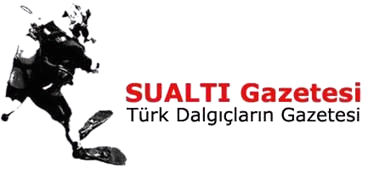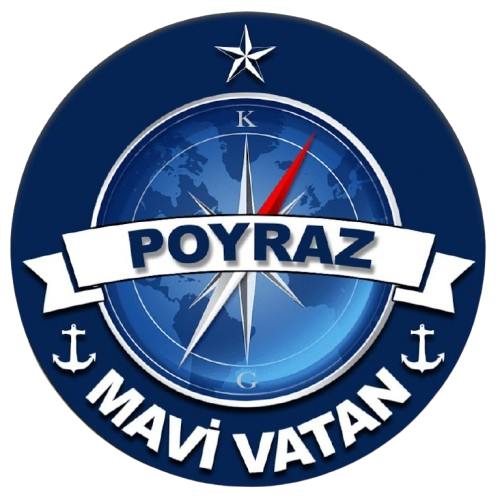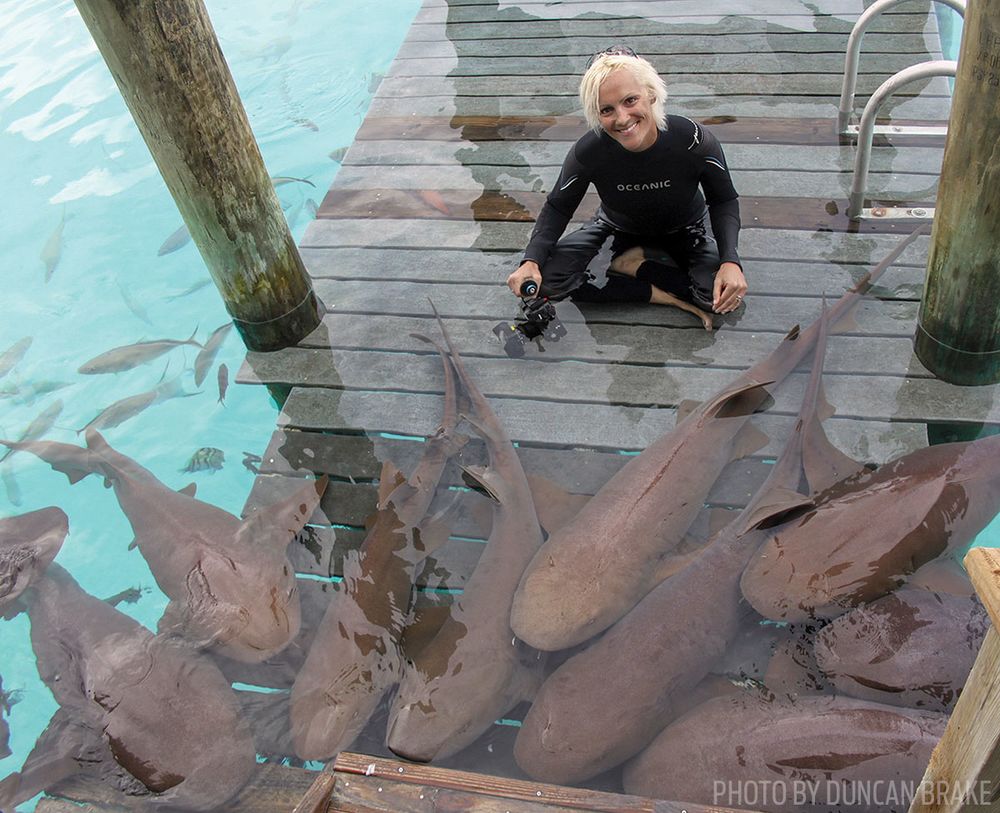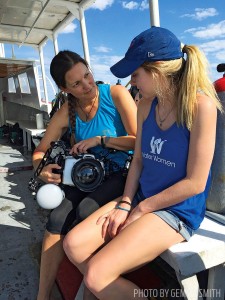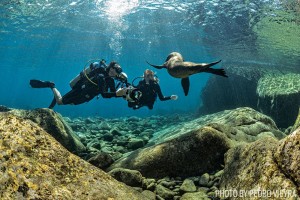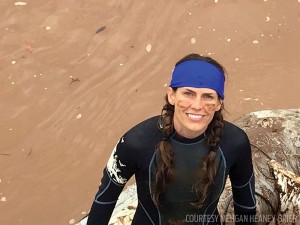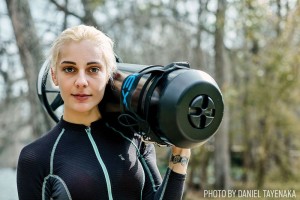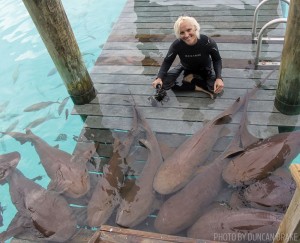Underwater shooter and expedition leader Amanda Cotton added one more title to her name in 2014: nonprofit starter. Fed up with challenges in the industry, she decided to empower young women by connecting them with the dive community’s female leaders, thus creating Water Women.
Q: What inspired you to start a nonprofit?
Amanda Cotton: Frustration. I’ve been a professional underwater photographer for 13 years, and I get in trouble for saying it, but when I look at projects and jobs, the teams hired are often all men. Or, there is one woman on a team of five or 10 people. And it’s not for a lack of talented female underwater shooters. It’s just how these things are structured.
Q: Do you feel like that’s changing?
AC: I do. ADEX Singapore 2015 did a show called In Celebration of Female Divers that I was involved with. And I’m seeing more women judging on event panels and leading trips. [The sexism] was a bunch of small things. I never felt left out, but I certainly noticed it. I think all of us [women] have to a certain extent. But I know it’s also a touchy subject.
Q: So what exactly is Water Women?
AC: For girls ages 8 to 18 who are interested in any water-related career, we offer mentoring, internships and scholarships. We pair them with a woman who is highly trained in the specialty the girl chooses, whether it’s underwater photography, marine science, marine biology, commercial diving — anything.
Q: Tell me about the programs.
AC: Everything is customized. We offer anything from one-day events where multiple girls come in to learn from one mentor, such as the one coming up where marine archaeologist Stephanie Gandulla will speak about the Great Lakes. We also offer extended programs that are more like internships.
Q: Who gets involved to mentor?
AC: Our list is wonderful! Right now, we have 42 mentors from around the globe — in North America, South America, Asia, Europe and Africa. We have PADI course directors, boat captains, researchers, underwater photographers and filmmakers, commercial divers, marine biologists, and NASA aquanauts.
Q: So what is the mentee experience like?
AC: There’s a young lady, Rachel Ren, who came to us as a water conservationist with the dream of starting her own dive magazine. She wanted our help to dive with and take underwater photos of sharks. Rachel also has a bone disease, and when she first came to us, it hit her hard. Her doctors thought she would no longer be able to use her legs. But her dad really encouraged her to go. She did, coming to Grand Bahama to shoot tiger sharks with me and Debra Canabal of Epic Diving. Rachel was struggling with a lot of physical pain. You could see it in every step. And it ended up being one of the most memorable dives I’ve ever had.
Q: How so?
AC: She had gotten to a point where she had wanted to give up on a lot of what she was doing in life. Then she joined us in the water, and there was such a shift. Ultimately, she made a choice to continue. It was incredible.
Q: What has the mentee taught the mentor?
AC: I’m going to cry — this is so important to me. Rachel taught me the true meaning of determination. But with every girl we work with or that I email, I see that they have so much strength. And that’s such a beautiful thing.
Wonder Women
Mehgan Heaney-Grier
At the ripe age of 18, Heaney-Grier reached 155 feet on a constant-weight freedive, setting a U.S. record for both men and women. The Women Divers Hall of Fame member has been busy ever since, including appearances on several TV programs.
Gemma Smith
This PADI Master Scuba Diver Trainer has logged thousands of dives, including many in caves and on closed-circuit equipment. Her passions include archaeology, which led to her role in helping excavate the Greek Antikythera wreck.
Jillian Morris
When some folks may shy away, Morris thrives. This shark-lover has dedicated much of her career to diving with and teaching others about the oft-misunderstood fish, leading her to being named a Sea Hero by Scuba Diving magazine in 2016.
Source: Sport Diver
